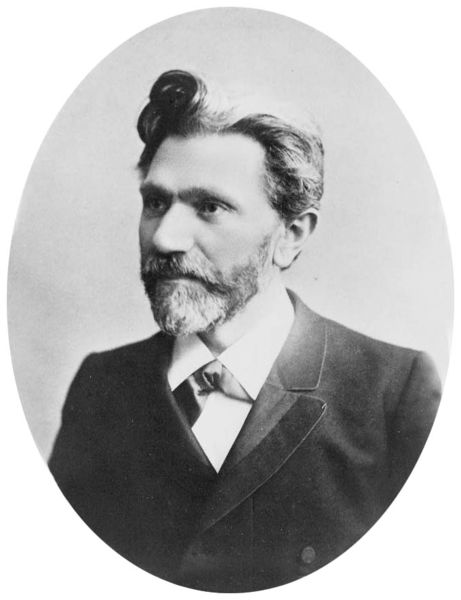February 22: August Bebel (1840)
 It was on this date, February 22, 1840, that German Marxist politician, writer, and orator August Bebel was born Ferdinand August Bebel in Deutz, Germany, now a part of Cologne. A product of the working class himself, with Wilhelm Liebknecht (1826-1900), Bebel was a co-founder of the Marxist Social Democratic Party of Germany in 1896. This organization eventually morphed into the Social Democratic Party of Germany (SPD) by 1890. Through his oratorical power and organizing skills, Bebel became one of the leaders of the socialists and their chief spokesman in parliament. He remained a member of the North German Parliament almost continuously until his death in 1913.
It was on this date, February 22, 1840, that German Marxist politician, writer, and orator August Bebel was born Ferdinand August Bebel in Deutz, Germany, now a part of Cologne. A product of the working class himself, with Wilhelm Liebknecht (1826-1900), Bebel was a co-founder of the Marxist Social Democratic Party of Germany in 1896. This organization eventually morphed into the Social Democratic Party of Germany (SPD) by 1890. Through his oratorical power and organizing skills, Bebel became one of the leaders of the socialists and their chief spokesman in parliament. He remained a member of the North German Parliament almost continuously until his death in 1913.
Bebel pushed the SDP to oppose militarism and the maltreatment of soldiers by officers, shake off its hatred of Jews with the well-known saying “Anti-Semitism is the socialism of fools” (“Der Antisemitismus ist der Sozialismus der dummen Kerle”), oppose the rising popularity of theories of racial hierarchy and racial purity (which Hitler later endorsed), and despise the religiously inspired subjugation of women. Throughout his life, Bebel argued that socialists not endorse religion and supported his argument with writings against Christianity – which he called “the enemy of liberty and civilization.” Chief among these writings was Woman in the Past, Present, and Future (Die Frau in der Vergangenheit, Gegenwart, ind Zukunft; 1886 in English) – which was denounced for its attack on the institution of marriage but aided the spread of rationalist thought in Germany. August Bebel died on 13 August 1913 of a heart attack during a visit to Switzerland. He was 73 years old. His body was buried in Zürich. It was August Bebel who said, “We aim in the domain of politics at republicanism; in the domain of economics at socialism; in the domain of what is today called religion, at atheism.”

